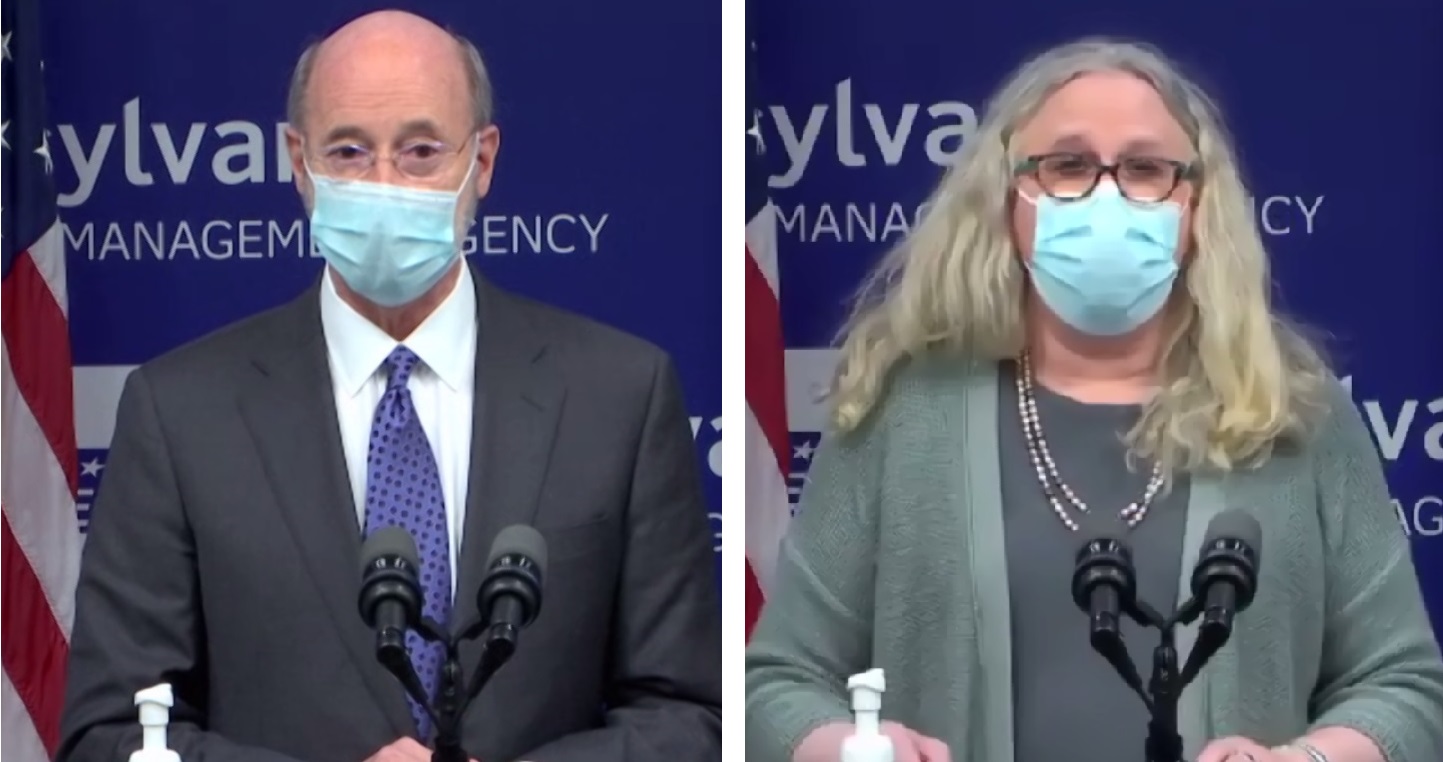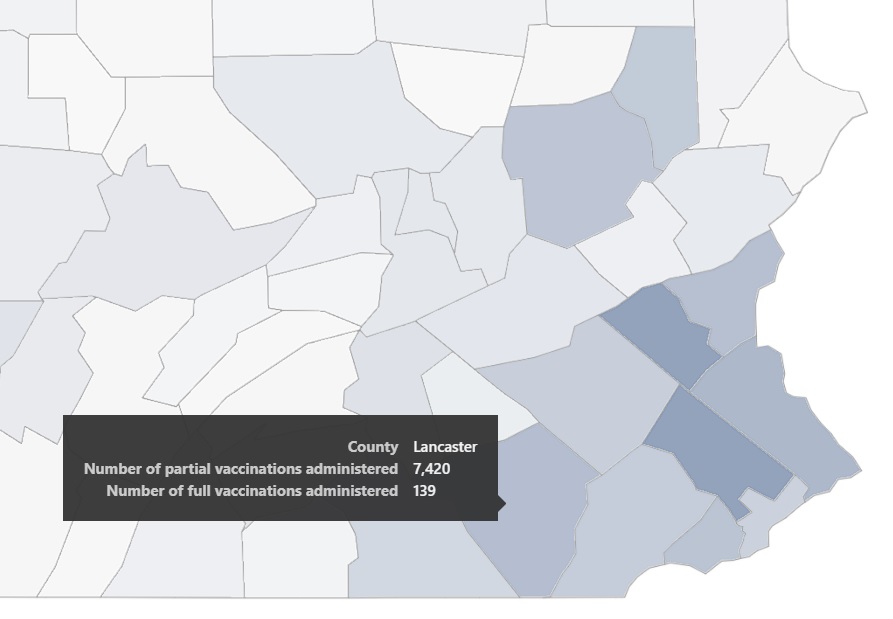
Pennsylvania has released the fourth version of its Covid-19 vaccination plan, Gov. Tom Wolf and Health Secretary Dr. Rachel Levine said Friday.
The new version contains multiple updates that Levine said aligns it with the latest recommendations from ACIP, the Advisory Committee on Immunization Practices; and the CDC, the U.S. Centers for Disease Control and Prevention.
The plan's phases are summarized on the Health Department's vaccine information web page. Among other things, the plan:
- identifies specific categories of health care workers eligible to receive the vaccine in Phase 1A, the first phase of distribution;
- significantly changes Phase 1B, which now includes people age 75 and older, first responders and various categories of essential workers not included in Phase 1A;
- adds a new phase 1C, consisting of people age 65-74, people with high risk conditions, and essential workers not covered in Phases 1A or 1B.
- provides for the vaccination of the general public in Phase 2. The previous version did not have a Phase 1C, so many of those individuals were covered under Phase 2 and the general public was covered under a Phase 3 that is now eliminated.
Pennsylvanians are invited to comment on the plan using an online feedback form.
So far, Pennsylvania has received 827,300 doses of the Pfizer and Moderna vaccines and administered more than 235,000 doses, Levine said.
As of Friday, 199,616 of those 235,000 doses had been recorded on the state's vaccine dashboard. Levine attributed the difference to reporting delays of up to 24 hours for doses administered by hospitals and health systems and up to 72 hours for those administered by Walgreens and CVS through their partnership with the federal government's Operation Warp Speed.

Wolf said the ongoing vaccine rollout gives hope that "a future without Covid-19 is coming."
Officials hope to vaccinate Pennsylvania's population as quickly as possible, but that will depend many factors, most of all the supply provided by Pfizer and Moderna, Levine said.
"It will take several months before there is vaccine available for everyone," the secretary said. In the meantime, people should wear masks, wash their hands, and avoid gatherings — the recommendations Levine has reiterated throughout the pandemic.
"Stay home unless you have a need to go out," Levine said.
On Friday afternoon, a spokesperson for President-elect Joe Biden said Biden wants to discontinue Operation Warp Speed's practice of reserving a second dose for every first dose sent out. As long as second doses will be available when the time comes, that's fine, Levine said.
She acknowledged some eligible health care workers have declined the shots, a reluctance termed "vaccine hesitancy." The state will do its part to tout the vaccine's safety and efficacy, but what's really needed is a national communication strategy, Levine said.
In response to questions, Wolf said he'll look at multiple factors in deciding when to lift his Covid-19 mitigation orders, including case prevalence, hospital capacity and vaccine distribution.
A vaccination rate of 65% to 75% would be a "comfortable" benchmark for returning to normal, the governor said. However, he said, the decision is not only up to him, but to the millions of Pennsylvanians who must decide for themselves when it feels safe to go out and shop, dine and gather.





